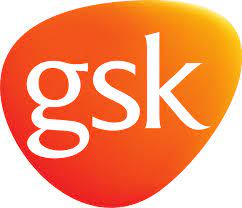Article
Initial Results Positive for Daprodustat as a Chronic Kidney Disease Treatment
Author(s):
The treatment met all 5 primary efficacy endpoints as part of the ASCEND program.

New data suggests daprodustat leads to an improvement in hemoglobin (Hgb) levels in untreated patients with anemia due to chronic kidney disease (CKD) and maintains levels in patients treated with an erythropoietin stimulating agent (ESA).
GlaxoSmithKline announced the positive headline results from 5 phase 3 studies as part of the ASCEND program evaluating the investigational oral hypoxia-inducible factor prolyl hydroxylase inhibitor (HIF-PHI) in this patient population.
Efficacy Endpoints
The treatment met the primary efficacy endpoint in each of the 5 studies, as well as the key cardiovascular outcomes showing daprodustat was non-inferior when compared to an ESA, the standard treatment for this population, in the risk of major adverse cardiovascular events for both non-dialysis (ASCEND-ND) and dialysis patients (ASCEND-D).
Also included in the ASCEND program are studies focused on incident dialysis for patients just beginning dialysis (ASCEND-ID), a quality of life examination (ASCEND-NHQ), and a trial looking at three-times weekly dosing regimens (ASCEND-TD).
ASCEND involved more than 8000 patients treated for up to 3.75 years.
Safety
For safety, daprodustat was generally well-tolerated in both patient groups across the entire program.
The incidence of treatment-emergent adverse events was similar between the different treatment groups.
The nature of the reported adverse events were consistent with the underlying patient population, with the most commonly reported adverse events across the treatment arm including hypertension, diarrhea, dialysis hypotension, peripheral edema, and urinary tract infection.
The Future
“I am particularly pleased with the results from the ASCEND-ND and ASCEND-D studies given the importance of managing cardiovascular outcomes for patients who are currently suffering from anemia due to chronic kidney disease, as well as the need to provide a convenient, oral treatment option,” Hal Barron, MD, Chief Scientific Officer and President R&D, GSK, said in a statement. “We will continue to analyze the data from the robust phase 3 ASCEND program and look forward to working closely with regulators as we plan for our submissions.”
Officials expect the full results will be presented during a medical meeting later this year. Daprodustat is currently only approved in Japan as Duvroq for patients with renal anemia.




